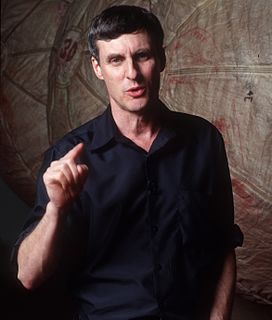A Quote by J. Robert Oppenheimer
Related Quotes
To be a scientist you have to be willing to live with uncertainty for a long time. Research scientists begin with a question and they take a decade or two to find an answer. Then the answer they get may not even answer the question they thought it would. You have to have a supple enough mind to be open to the possibility that the answer sometimes precedes the question itself.
A dialogue is very important. It is a form of communication in which question and answer continue till a question is left without an answer. Thus the question is suspended between the two persons involved in this answer and question. It is like a bud with untouched blossoms . . . If the question is left totally untouched by thought, it then has its own answer because the questioner and answerer, as persons, have disappeared. This is a form of dialogue in which investigation reaches a certain point of intensity and depth, which then has a quality that thought can never reach.
In the Marquette Lecture volume, I focus on the question in the title. I emphasize the social and political costs of being a Christian in the earliest centuries, and contend that many attempts to answer the question are banal. I don't attempt a full answer myself, but urge that scholars should take the question more seriously.
I never buy anything unless I can fill out on a piece of paper my reasons. I may be wrong, but I would know the answer to that ...I'm paying $32 billion today for the Coca Cola Company because... If you can't answer that question, you shouldn't buy it. If you can answer that question, and you do it a few times, you'll make a lot of money.





































